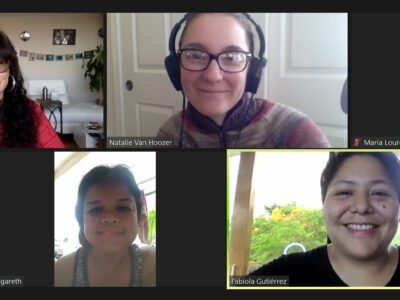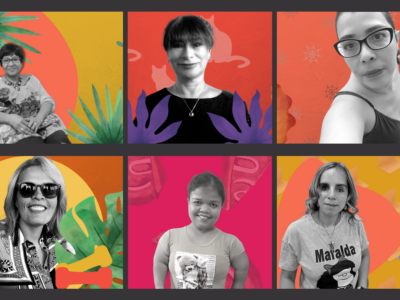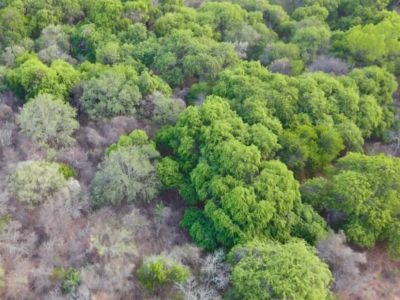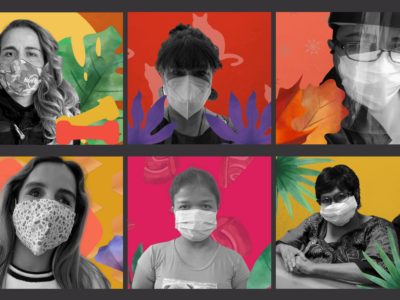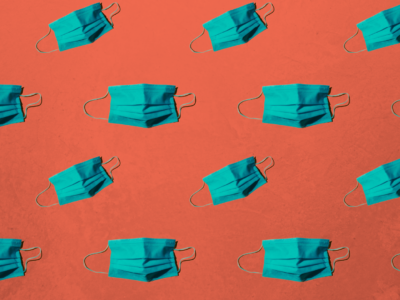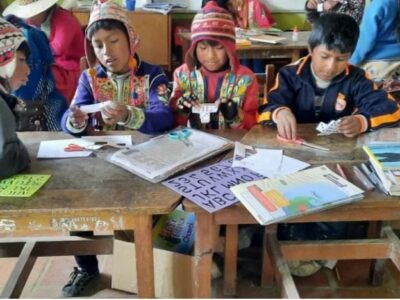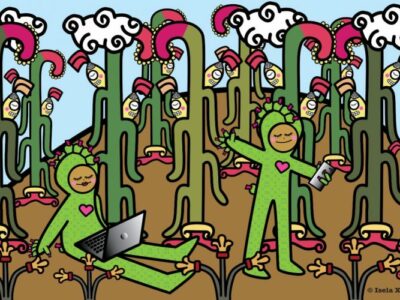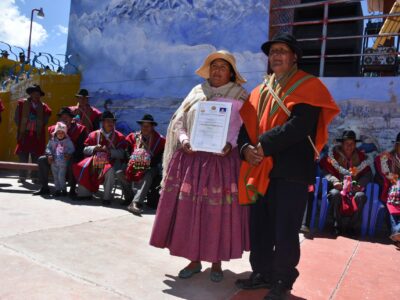Stories about Bolivia
The burden of women with HIV in Bolivia
Women with HIV in Bolivia face little access to health, informal work, family abandonment and more discrimination than male patients.
The silent decline of childhood vaccination in Latin America
Structural failures in the Latinamerican health systems and the lack of political will are obstacles to solving the decline of vaccines in the region.
Latin America's solidarity with Gaza defies US imperialism
As people take to the streets and governments recall their ambassadors to Israel, Palestine solidarity in South America is not only a fight against Israeli apartheid but also US hegemony in the region.
Bolivian high school students want to redefine conversation around environment and climate change
"Although they say that we are the future of the country, they do not take us into account," say students who want to contribute to these issues.
A lasting legacy of Ignacio Tomichá Chuvé: Revitalizing the Besɨro language on the internet
In memory of Ignacio Tomichá Chuvé: Bésiro language digital activist from Bolivia. His enduring legacy will live on through the digital resources he created to promote his language and culture across diverse spaces.
Cultural appropriation and the erasure of cultural diversity
The monoculture that comes wrapped in plastic, that poisons what it touches and whose only value is consumption, is the real threat.
Undertones: Indigenous Bolivian youth question media narratives on fossil fuel extraction
Coping with severe drought, Indigenous communities in the Gran Chaco want local media to also highlight how oil companies impact their communities
‘Harvesting water’: Indigenous Bolivian women lead organic farming project against climate change
More than 120 Guaraní women from Timboy Tiguasú in the Bolivian Chaco lead agroecological production without pesticides and with harvesting, storage, and distribution of water.
Women's Day in Latin America: Reggaeton, rage, and sisterhood
Despite varying demands around labor or abortion rights, the main thread throughout Latin America was against gender-based violence.
Water scarcity in Indigenous communities should be reported on, a young Bolivian journalist says
What does a media search for the words "incendio" and "chaqueo" reveal? Brisa Abapori considers that these words were relevant in the media only during the fires, afterwards they were neglected.
Creating new, local narratives on climate change in the Bolivian Chaco
Young Indigenous journalists propose more representative media coverage of climate change focused on their lived realities in the Gran Chaco, Bolivia that extends beyond natural disasters.
Digital connectivity projects reduce climate change impacts in Gran Chaco, South America
Connectivity and access to technology allow the Gran Chaco communities to organize, communicate and react in a more timely manner to climatic emergencies.
In their own words: Facilitated conversation as a way to report on Latin America
The day-to-day lives of Latinas with disabilities are rarely reported in the media. That’s why we wanted to uplift their voices and allow them to dignify their experiences.
In their own words: Latinas with disabilities turn their homes into pandemic battlegrounds
“COVID created barriers for us that we had overcome before the pandemic. Now, we try to be as autonomous as possible, but we’re obligated to ask for help from other people.”
Reframing narratives about climate change in Bolivia’s Gran Chaco region
What happens when a region’s “media ecosystem” is less diverse than the populations that inhabit it? Rising Voices explored that question about the coverage of climate change in the Gran Chaco region in Bolivia.
In their own words: Latinas with disabilities explain leaving the house during the pandemic
Moving through the world as a blind woman is not the same as it was before the pandemic, from touching objects, to finding your way, to obtaining essential coronavirus information.
In their own words: How Latinas with disabilities persevere during the pandemic
To combat isolation and discrimination, the women interviewed joined forces with other people with disabilities, activists, and associations to join together in solidarity and make change.
Community radio schools: educational alternatives in the context of digital divide
A Bolivian radio project made education accessible to children stuck in their homes, without books, notebooks, information, or internet connection.
10 stories on Black and Indigenous identity from Latin America in 2021
See these 10 stories on Black and Indigenous identity, concern for the environment, and representation online.
Not just ‘Jingle Bells:’ Listen to these Christmas songs from Latin America
Listen to the songs played in Mexico, Cuba, El Salvador, Colombia, Ecuador, Venezuela, Bolivia, Peru and Brazil.
A certificate for grazing cattle: Empowering Bolivia's Aymara people by recognizing their work
The certification process allows a community that was valued before colonization to be revalued in order to be self-sustainable and for the reproduction of the life systems.




















